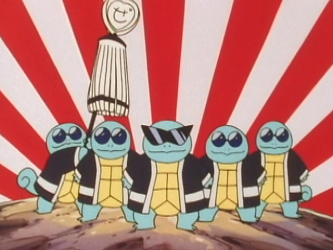Persona 3 and Persona 3 FES spoilers ahead. You've been warned.
So my wife just finished P3P. I figured this would be a good chance for us to view The Answer cutscenes, as I did not have an opportunity to play FES and have heard a lot of people say it's so awesome. And yes, I wanted to know what exactly was going on after.
Let's get this out of the way - we were both pretty disappointed. The ideas and themes were all pretty interesting. I think it's awesome that we got a conflict within the party, but the execution was forced - why fight in pairs? Why is Aigis fighting at all if she doesn't know what she want? Why is Koromaru with Junpei? Why does Junpei fight if he's just scared of Nyx? Why aren't he and Koromaru on the same team as Akihiko and Ken when their goal is the same - leaving the dorm (other than the fact that a two-on-four battle would be too hard)?
Now, time for Erebus. Again, I love the idea that it's humanity's own fatalistic tendencies that are the true villain instead of Death personified. But what does fighting him accomplish? Why does he target Aigis? I understand she has a wildcard now, but she's not exactly a threat as the seal's already in place and placing another won't change a thing so essentially, killing her does Erebus no good. Fighting it accomplished absolutely nothing aside from giving the game a final boss. If they had only discovered the true nature of the seal and not battled, it would not have impacted the plot in the slightest, because at the end they say Erebus is a threat as long as people don't change. Not to mention, he seems pretty anticlimactic, but that's subjective.
Any thoughts? Perhaps some answers to those questions, other that sloppy writing? I really was expecting better, especially after such a strong scenario in "The Journey", this just seems shoehorned in, unnecessarily padded, rushed, and a waste of good potential.





 Reply With Quote
Reply With Quote




